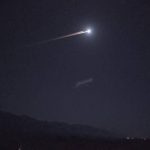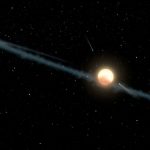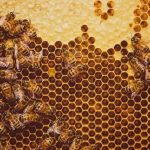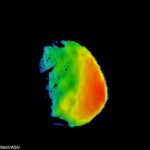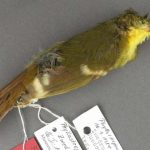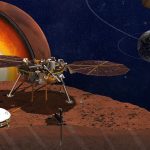A giant fireball streaks across skies in China Wednesday night. Observers were admiring the full moon in celebration of their traditional Mid-Autumn Festival when they suddenly saw three meteors explode in the dark sky before their very eyes. The giant fireballs appeared in the sky over Shangri-La County in Yunnan Province in southwest China. One eyewitness told MailOnline that the ... Read More »
Science
Antarctic Iceberg’s Split Reveals Ecosystem Hidden for Thousands of Years
An iceberg the size of Delaware that broke away from an ice shelf in the Antarctic Peninsula in July is beginning to reveal an undersea ecosystem. The massive calving also uncovered a mysterious and precious marine ecosystem hidden under the ice that could have been buried for up to 120,000 years – and it’s vital we protect this isolated sanctuary ... Read More »
Prehistoric humans ‘avoided inbreeding’, scientists say
Early humans seem to have recognised the dangers of inbreeding at least 34,000 years ago, and developed surprisingly sophisticated social and mating networks to avoid it, new research has found. The study, reported in the journal Science, examined genetic information from the remains of anatomically modern humans who lived during the Upper Palaeolithic, a period when modern humans from Africa ... Read More »
Researchers Have a New Theory to Explain “Alien Megastructure” Star
Astronomers say they’ve found a smoking gun that rules out the idea of an energy-harvesting megastructure or Dyson sphere – built by an alien civilization – surrounding Tabby’s Star. In recent years, a distant star in the constellation Cygnus, known officially as KIC 8462852 and unofficially as Tabby’s Star, has intrigued astronomers due to its irregular but significant dimming. As ... Read More »
Researchers discover five supermassive black hole pairs
Five new pairs of merging supermassive black holes have been discovered by combining data from NASA’s Chandra X-ray Observatory, the Wide-Field Infrared Sky Explorer Survey (WISE), and the ground-based Large Binocular Telescope in Arizona. The five pairs of supermassive black holes possess the mass equivalent to millions of times that of Sun’s. The collision of two galaxies followed by their ... Read More »
Pesticide traces found in 75 percent of world honey
THREE-QUARTERS of the world’s honey contains traces of pesticides that can harm bees and pose a potential risk to humans, a research found. Researchers who tested 198 samples discovered that 75 per cent were laced with at least one of the neonicotinoid chemicals. The situation is more bleak for pollinators, however. Widespread application of neonicotinoids has been identified as a ... Read More »
New JILA 3D Quantum Gas atomic clock can outperform all predecessors
According to a news release from the National Institute of Standards and Technology (NIST), JILA physicists have created an entirely new design for an atomic clock, in which strontium atoms are packed into a tiny three-dimensional (3-D) cube at 1,000 times the density of previous one-dimensional (1-D) clocks. In doing so, they are the first to harness the ultra-controlled behavior ... Read More »
Research: Examining Mars’ Moon Phobos in a Different Light
The Thermal Emission Imaging System (THEMIS) camera on NASA’s Mars Odyssey spacecraft observed Phobos — the larger and inner of the two natural satellites of the Red Planet — on September 29, 2017. THEMIS Principal Investigator Philip Christensen and THEMIS Mission Planner, Jonathon Hill of ASU’s School of Earth and Space Exploration, combined visible-wavelength and infrared data to produce an ... Read More »
Elusive songbird may never have actually existed, says new research
ONE of the most elusive species of songbird may be so rarely seen because it never actually existed, according to scientists. According to a new research published in the Journal of Ornithology, the elusiveness of the Liberian greenbul, the rarest of songbirds, can be explained by its lack of existence. The Liberian Greenbul (Phyllastrephus leucolepis) has eluded experts for decades ... Read More »
Asteroids Sparked Life on Earth, Scientists Say
A new research from McMaster University and the Max Planck Institute suggests that meteorites that fell into warm puddles during the early years of the Earth could’ve been the trigger for life. Meteorites carried elements that helped form RNA. The study, led by Ben Pearce and Ralph Pudritz, drew on elements of astrophysics, biology, chemistry and geology to try to ... Read More »
NASA: Another Chance to Put Your Name on Mars
NASA is allowing you to send your name to Mars on a microchip on board the InSight mission. When it lands on Mars in November of 2018, NASA’s InSight lander will be carrying several science instruments — along with hundreds of thousands of names from members of the public. In 2015, nearly 827,000 people signed up to add their names ... Read More »
 Canada Journal – News of the World Articles and videos to bring you the biggest Canadian news stories from across the country every day
Canada Journal – News of the World Articles and videos to bring you the biggest Canadian news stories from across the country every day
